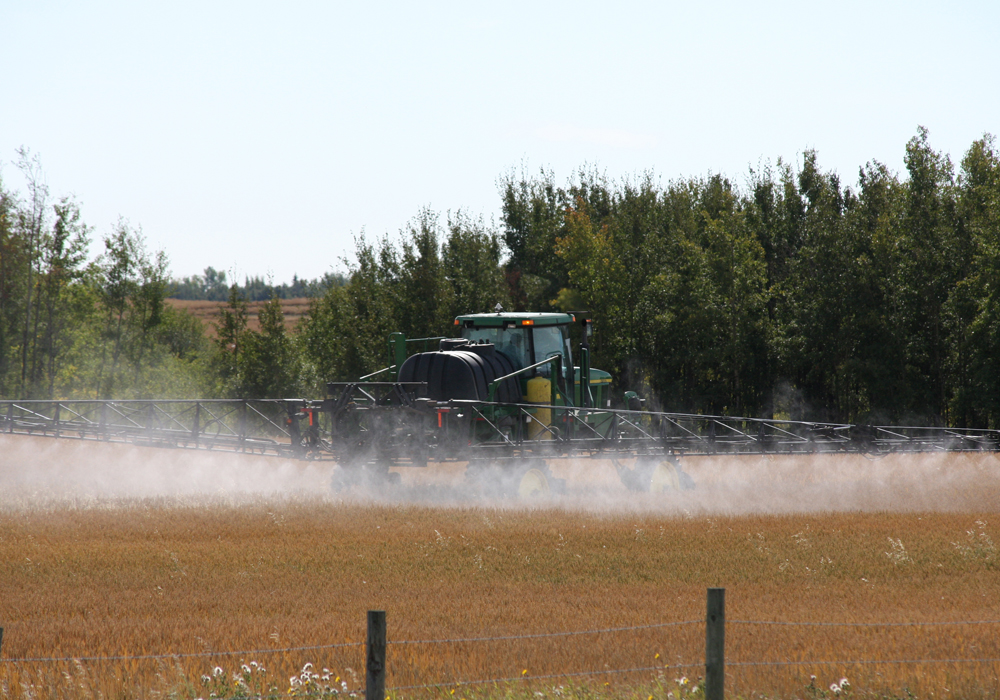Environmental groups had argued the PMRA didn’t have the ability to phase in changes it made to product registrations
Pierre Petelle is breathing a sigh of relief in the wake of a Federal Court ruling reaffirming the Pest Management Regulatory Agency’s authority to set phase-in periods for amended pesticide registrations.
“We’re very pleased with the outcome because it would have been tremendously impactful,” said the president of CropLife Canada.
The David Suzuki Foundation, Friends of the Earth Canada, Equiterre and the Wilderness Committee were challenging the PMRA’s ability to set timelines for the implementation of label changes.
The legal challenge surrounds the PMRA’s re-evaluation of Syngenta Canada’s thiamethoxam technical (TMX) active ingredient used in 17 neonicotinoid pest control products.
Read Also

Farming Smarter receives financial boost from Alberta government for potato research
Farming Smarter near Lethbridge got a boost to its research equipment, thanks to the Alberta government’s increase in funding for research associations.
On April 11, 2019, the PMRA issued its final decision following a seven-year review of the product.
The decision allowed for continued use of the product as a seed treatment on cereals and legumes but cancelled the foliar and soil application of TMX on certain crops such as orchard trees and restricted foliar application on some crops during bloom.
The PMRA said the risk mitigation measures would be implemented over a two-year period. The environmental groups said that delay was outside the PMRA’s statutory authority.
They wanted the measures to be implemented immediately.
The David Suzuki Foundation was contacted for this story but did not respond in time for The Western Producer’s deadlines.
CropLife, which was granted intervenor status in the court case, said the phase-in period would have “handcuffed” farmers and caused huge disruptions in their businesses, making them less competitive in the marketplace.
Petelle said it is unreasonable to expect a farmer to suddenly scrap his pest management plan the minute the PMRA issues a ruling.
“(The ruling) could have come out right in the middle of spraying season and a farmer has got this stuff in a tank and suddenly what he is using is not permitted anymore,” he said.
He said the challenge wasn’t just about the Syngenta case; it was also about the PMRA’s longstanding practice of allowing transition periods for label changes.
Petelle said there is a steady stream of product re-evaluations at the PMRA.
“There’s decisions coming out several times a year on several different actives with sometimes dozens and dozens of different products affected,” he said.
Petelle wouldn’t be surprised to see more legal challenges from activist groups related to pesticide regulation in Canada because it has become commonplace in the United States.
“CropLife America has a whole in-house legal team. Thankfully, I haven’t had to have actual lawyers as staff people, but down there, that’s just the norm,” he said.
One of his biggest concerns is that if legal challenges like this one were successful, it would chase away future investment in new pesticide products in Canada.
“Canada is already a small market and we don’t need any issues like this that would make Canada less attractive,” said Petelle.
Crop protection developers want regulations that are science-based and predictable, he added.


















